How the Obama administration plans to fix the Affordable Care Act and how it could stall other second-term legislative priorities; and the recent negotiations and sticking points of a deal to limit Iran’s nuclear program. Joining Gwen: Indira Lakshmanan, Bloomberg News; John Harwood, CNBC/ The New York Times; Dan Balz, Washington Post; Jeff Zeleny, ABC News.
Full Episode: Fixing the Affordable Care Act and Iran Nuclear Talks
Jul. 08, 2014 AT 2:01 p.m. EDT
TRANSCRIPT
Notice: Transcripts are machine and human generated and lightly edited for accuracy. They may contain errors.
GWEN IFILL: A presidential mea culpa on health care. Will it staunch the bleeding or cost him the credibility he needs on other issues, like Iran, tonight on “Washington Week.”
The president falls on his sword.
PRESIDENT BARACK OBAMA: (From tape.) Ultimately, I’m the head of this team. We did fumble the ball on it. And what I’m going to do is make sure that we get it fixed.
MS. IFILL: And his opponents smell blood.
REPRESENTATIVE DARRELL ISSA (R-CA): (From tape.) This wasn’t a small mistake. This wasn’t a scaling mistake. This was a monumental mistake to go live and effectively explode on the launch pad.
MS. IFILL: Even before the president’s admission that he should have known but didn’t that his health care plan was not ready for prime time, Democrats were joining the criticism.
PRESIDENT BILL CLINTON: (From tape.) I personally believe, even if takes changing the law, the president should honor the commitment the federal government made to those people and let them keep what they got.
MS. IFILL: How much of a hit did the White House take this week? And is it too late to salvage the health care plan or the president’s credibility? That could be an important question for the U.S. as it seeks to negotiate a deal to freeze Iran’s nuclear program without imposing new sanctions.
SECRETARY OF STATE JOHN KERRY: (From tape.) And our hope is now that no new sanctions would be put in place. It could actually wind up setting us back in a dialogue that’s taken 30 years to be able to achieve.
MS. IFILL: What can and can’t be done? Covering the week, Dan Balz of the Washington Post, John Hardwood of CNBC and the New York Times, Indira Lakshmanan of Bloomberg News, and Jeff Zeleny of ABC News.
ANNOUNCER: Award-winning reporting and analysis, covering history as it happens, live from our nation’s capital this is “Washington Week with Gwen Ifill.”
(Station announcements.)
ANNOUNCER: Once again, live from Washington, moderator Gwen Ifill.
MS. IFILL: Good evening. This week’s health care meltdown provided an intriguing look into all things Washington: a self-confident president reduced to rueful apology; an unpopular Congress with an eye on midterm elections; and a belated realization that big, sweeping change, especially when it relies on complicated gee-whiz technology, can collapse on itself.
The president said repeatedly that his folks fumbled the ball by promising everyone could keep the policy they liked.
PRESIDENT OBAMA: (From tape.) My expectation was that for 98 percent of the American people, either it genuinely wouldn’t change at all or they’d be pleasantly surprised with the options in the marketplace, and that the grandfather clause would cover the rest. That proved not to be the case. And that’s on me.
MS. IFILL: But for the staunch opponents who early on branded the plan “Obamacare,” the botched rollout was about more.
REPRESENTATIVE FRED UPTON (R-MI): (From tape.) For millions of Americans, it’s cancellations today, sticker shock tomorrow. For the last six weeks, the White House stood idly by, ignoring the pleas of millions, but as the administration’s allies in Congress panicked, the White House went from attacking our thoughtful bill to making an end around Congress with a universal fix.
MS. IFILL: Congressman Upton’s bill to allow policyholders to keep the plan they want permanently passed the House today with nearly 40 Democratic votes. So what was most telling this week: the depth of the technology snafu, the opportunity it provided Republican critics, the angst it caused Democratic supporters, or what it revealed about Barack Obama himself, Dan?
DAN BALZ: Well, I think clearly what we saw about the president was the most important thing of the week. We’ve known that the website was (bulky ?) and having significant problems. We’ve known that this has provided an opening for the Republicans.
What we saw this week was a president who was – as you suggested, was as contrite as we’ve ever seen him, clearly on his heels over this, and I think recognizing how the situation he’s now in, A, is different than anything he’s really faced as president; and, B, unless they can get both the health care plan fixed and restore some measure of credibility more generally to his presidency, his second term is at risk.
MS. IFILL: John, give us a little bit of the nuts and bolts. What exactly – if you’re sitting at home and you’re kind of paying attention to this, you know that something went wrong with the plan. You know a lot went wrong with the website, but just about the plan itself, what exactly happened that the president felt he had to fix?
JOHN HARWOOD: Well, the way the health care law is working is actually, if you set the website aside, is how it was expected to work – how they knew it was going to work. They anticipated, because the president and the law on purpose turned over the individual market.
Now, we’re in a situation where all of the people who think they’re hurt by that know it and are complaining very loudly. And because the website’s not working, all of the people who might be helped by that can’t find it out. And so you have a huge imbalance. You always have a – we have a political system where people who make the most noise get the most response. And so that was putting tremendous pressure on the White House, on Democrats in Congress. Republicans took advantage. And what the president was engaged in was an exercise of trying to put up a heat shield for himself and for Democrats with this fix.
Now, in terms of what it means for insurance policies, probably not all that much, because the president didn’t compel anyone to do anything. What he did was say to state insurance commissioners –
MS. IFILL: It’s on you.
MR. HARWOOD: If you’re willing to do this and if the insurance companies are also willing to do it, then those policies can be extended as late as September 2015. But, of course –
MS. IFILL: Except we’ve heard insurance companies and these insurance commissioners saying, wait a minute.
MR. HARWOOD: Many states and many insurance companies in fact don’t want to do that. And the White House knew that. What they’re trying to do is stop the steamroller of the bill that Fred Upton was talking about in the clip that you just played, and give Democrats something to hang on to to say, we’re going to stand with the president. He’s dealing with this issue. And we’re going to see over the next few weeks as they try to fix the website how successful that was.
MS. IFILL: We should say the Upton bill probably wouldn’t pass the Senate, and if it did the president would veto it anyhow.
MR. HARWOOD: Not probably. It definitely won’t pass.
MS. IFILL: Well, definitely. But it’s going to – it’s going to – however, it gave the Republicans another cudgel with which to beat the president.
MR. HARWOOD: Yes.
MS. IFILL: I want to ask you about that, Jeff. The example of that was John Boehner when he came out this week, and he talked in advance of the president about everything that was wrong with this.
REPRESENTATIVE JOHN BOEHNER (R-OH) [Speaker of the House]: (From tape.) When it comes to “Obamacare,” it’s clear that the American people simply can’t trust this White House. The White House has said Americans could trust them when they submitted their personal information, that the website was tested and was secure. Well, that hasn’t happened.
MS. IFILL: John Boehner, a couple of weeks ago, was at the bottom of the pile here after the government shutdown, and we decided, ah-hah, Republicans have grievously hurt themselves. And now they see a little daylight.
JEFF ZELENY: A lot of daylight actually. And it’s one month tomorrow is when the government shutdown ended.
MS. IFILL: Is that all?
MR. ZELENY: I mean, things really changed in a hurry. So that’s what the White House is hoping that, you know, perhaps this narrative will change in a hurry and the substance will change, but probably not so fast.
I mean, I have heard Speaker Boehner say similar things to that throughout the year, but this time is different because the president – a failed policy, a failed website and nervous Democrats have given Republicans a huge opening today. And today, 39 Democrats in the House walked through it. And they voted with Republicans on the Upton bill to basically defy the president, to defy their House leadership, and they want to cast a vote.
Even as the president was speaking yesterday for a pretty long time, answering a lot of questions on purpose to try and like show people that he is sorry and trying to get that trust back up, Democrats on the Hill – Senate Democrats were like, well, we actually want to vote on this. We want part of our voting record to include some type of a fix to Obamacare because they are running for reelection next year.
MS. IFILL: And the leader in that – in that movement was Senator Mary Landrieu. Let’s listen to her for a second.
SENATOR MARY LANDRIEU (D-LA): (From tape.) We’re going to be working across the aisle not to repeal the Affordable Care Act, not to defund the Affordable Care Act, not to undermine the Affordable Care Act, not to gut the Affordable Care Act, but to fix it.
MS. IFILL: But isn’t fixing it undermining it?
MR. ZELENY: Well, in that specific thing, right before she said that, she said, what the president did today was a good first step. So, I mean, she is one of those Democrats on the front line of a tough reelection, a campaign in Louisiana. I was standing right next to her when she was saying that.
And, boy, she made clear that she is going to go ahead with this. Some of it is window dressing. She wants her constituents at home to know that she is focused on fixing this. But the White House is worried about her bill because her plan or her bill would allow Americans to keep their policies indefinitely. That sort of changes the whole balance of all this, so not all that many Democrats are signing on with her. I think seven have now.
But even the others, like Senator Jeanne Shaheen of New Hampshire has a bill; Tom Udall has a bill; so many different bills out there. And the White House, you know, is sort of playing whack-a-mole with all these plans here. But people want to vote on something.
INDIRA LAKSHMANAN: I want to ask thought about the president’s proposed fix. If the idea is to allow people to keep their old plans that were supposed to be phased out for a year, isn’t that essentially just kicking the can down the road and we’ll have the same decision to make one year from now, right before the 2014 election? Is that any better for Democrats at that point?
MR. ZELENY: Well, it at least I think relieves some sort of the pressure that’s been building up. But John’s absolutely right. I mean, the president wasn’t compelling anyone to do anything. He was – it was very much a message event yesterday in the White House to say, look, we hear you. We know we need to fall on our sword. I mean, he’s fallen on his sword. We’ve used that metaphor so many times. I mean, he’s bloody. But it’s true. But, no. You’re right – it is kicking the can down the road. It’s not solving anything. But they think it at least gives people more time to sort of deal with this.
MR. HARWOOD: Two points about this. First of all, this is one place where gridlock is the president’s friend, right, because getting the Republican House and the Democratic Senate to agree on a bill changing this law is going to be impossible. They simply – you know, Republicans want to – they do want to kill it and Democrats want to fix it, like Mary Landrieu said.
The other thing is, on your question, the answer is yes, a fix would in fact undermine the law, and that’s because for the law to work, you have to have people who have had these cancelled plans, many of whom are healthy people, who’ve benefited from the fact that they don’t have many medical needs so they can pay a small amount of money for a thin policy; those who get sick, a lot of times would have their insurance cancelled or face caps on what the benefits would be. But those people need to be in the system because their premium money is necessary to pay for the older, sicker people who now can buy insurance who couldn’t buy it before. So if you misalign or mess up that risk pool by taking younger healthy people out of it, you undermine the law.
MS. IFILL: You know, it’s interesting, Dan. One of the things that was fascinating about that news conference yesterday was a kind of an insight not only into the way the president’s mind works, but also the way the White House works, and which he admitted on several different occasions that he just didn’t know, which is interesting. Let’s listen to a little bit of that and talk about it.
PRESIDENT OBAMA: (From tape.) We didn’t go far left and choose an approach that would have been much more disruptive. We didn’t adopt some more conservative proposals that would have been much more disruptive. We tried to choose a way that built off the existing system. But it is complicated. It is hard. But I make no apologies for us taking this on because somebody sooner or later had to do it.
MS. IFILL: I call that the Goldilocks defense: you don’t want to go too left, too right. He wants to be right down the middle. But did it stick?
MR. BALZ: Yeah. Right now, the porridge doesn’t taste good to a lot of people.
MS. IFILL: No.
MR. BALZ: I think that what was most telling about that press conference was not simply that he said he was sorry, that we fumbled, that it was on his shoulders, on me, et cetera, which he said repeatedly, but a couple of other things.
One was the degree to which he did not know the problems as they were about to launch. But the second, and I thought was more revealing and I think more damaging, was when he said, you know, what we’ve learned is that buying insurance is very complicated, I mean, which was in essence a gentle way of saying, we bit off a lot more than we were able to do and we did not realize at the time how difficult this was going to be. I mean, almost any way you parse that, it’s not good for the president and the White House.
MS. IFILL: Except, think back to 1993, all of us who were there covering the last time they tried to do big health care with Hillary Clinton’s health care task force. They also bit off more than they could chew and collapsed as a result of it. And what he was just now trying to say is, we tried not to do that. We tried to find the sweet spot and still got tripped up on our own shoelace.
MR. HARWOOD: But the same thing is tripping up this president that tripped up Bill Clinton earlier in the process. The reason health care failed under President Clinton’s administration was that, ultimately, Americans – middle-class Americans became convinced that it was going to cost them money to provide insurance to other people.
The people who are now complaining are making that very same complaint: You’re messing with my situation in order to help somebody else. And it is a perfect storm moment because those complaints are happening at the same time the technological failure is preventing people from figuring out whether they come out ahead.
MS. LAKSHMANAN: I was struck by Bill Clinton and the clip that we saw earlier of him, you know, inserting himself into the process. Obviously, he’s someone who failed to do it before, as we said, and his wife failed to do it. But don’t the Clintons themselves have a rooting interesting in this working, in a way by him saying, let’s figure out a way that people can keep their plans for a year. I mean, if his wife is the presumptive nominee –
MS. IFILL: It felt like he was giving political old man advice, which is, when you’re a hole, stop digging, Barack.
MS. LAKSHMANAN: But it’s also in his interest for this to work or otherwise it’s going to reflect badly on his wife, right?
MR. BALZ: Well, I think that’s right. I mean, if this ultimately were to collapse and be judged a real failure –
MS. LAKSHMANAN: Bad for Democrats in general.
MR. BALZ: – it’s bad for Democrats. It’s bad for any notion of progressive change that requires the government to get involved in a big way. And it obviously would spill over on Hillary Clinton in 2016, if she runs.
MS. IFILL: Here’s what was unattractive about that. There was a lot of blame to go around in this news conference. He blamed the information technology. He blamed the procurement process. All these – not that all these things aren’t true. He blamed the insurance companies. He blamed the bureaucratic process of this. And he blamed us for not – or him for not being able to find a way to filter through us. OK. So it was a fumble, he said it – what – a half dozen times. Sports analogies are our friend.
MR. HARWOOD: But he said he was going to run with the ball in the next play.
MS. IFILL: Exactly. He said it. So is game over? Is the game over?
MR. ZELENY: Let’s not forget that he’s a basketball player, not a football player. (Laughter.) But, I mean, I think – I asked someone at the White House after that hour-long press conference ended, I’m like, was he intending to talk for that long? Because it seemed like the more excuses he was giving – or the more he was explaining – you know, if you’re explaining, you’re losing. They said, yes, he was always planning on talking at least an hour, wanted to take all those questions, because he really wanted to put it all out there and try and fix this trust deficit. They think if the public sees him, they still generally like him, and they’ll sort of see that he’s trying to do a good thing, but I’m not sure. He went through that whole list of all the people he’s blaming. Like, yes, it may be true, but there was no sort of a buck stops with me moment. I think – I wonder if a 20-minute –
MS. IFILL: Well, there was. There was. There were several of them.
MR. ZELENY: There were several.
MR. HARWOOD: How many times do you want him to say he fumbled?
MR. ZELENY: No, but I just thought like, you know, information – I just thought it stretched on so long, I’m not sure that there are people listening –
MS. IFILL: But if he had been shorter, would they have accused him of hiding something?
MR. ZELENY: But are people listening to him anymore? I mean, like that’s the big concern here.
MS. IFILL: Yeah. Yeah. That’s the question.
MR. HARWOOD: But on your question, no, the game is not over. If they can get the website working – and today, on their call, Jeff Zients, who’s heading up the process of trying to fix the website, said – you know, reported substantial progress. Now, look, they said it was going to work when it first started so we don’t know whether November 30, when they say it’s going to be working for the vast majority of users effectively, we don’t know if they’re going to achieve that. But that’s really the key to this whole process.
MS. IFILL: Riddle me this: why did it work on the state exchanges and not in the federal? Why did so many more people – why were so many people able to register through the states but not through the feds? Was it just a technology problem?
MR. HARWOOD: I think it’s because the scale problem, like if you have a state government dealing with only its own citizens and not having the layers of complexity introduced by the federal government having to interact with a variety of entities, including in – you know, 30-some states at one time, I think that’s a lot of it.
MR. BALZ: What I was going to say is I agree with John. The game is not over. You know, we’re six weeks into this and, as we know, a month ago we were talking about the Republicans.
But I think that getting the website fixed and getting the program operating smoothly is the bare minimum that he’s going to need. I mean, he made a very telling comment yesterday, which was, I have to regain my credibility with people on health care and a number of other issues. And I think that was an acknowledgement that this is – that the problem for him is broader than simply the health care issue.
And the feeling of people who I’ve talked to in the last few days who are loyal to him, is that – you know, no more mistakes. They cannot afford more mistakes. They think this will work. They think that they have some time. They think it’s not going to turn around for him instantly. But they believe there is a path back. But if something further goes wrong, if there’s some other unexpected problem, it could take a terrible toll.
MS. IFILL: It’s funny you should mention how things can leak over into other topics because that’s what’s going to – we’re going to trying to talk about next because it seemed this time last week that John Kerry had a deal, right up until he didn’t. After France chaffed and Israel objected, a tentative plan to get Iran to freeze nuclear enrichment in exchange for slightly relaxed sanctions went right off the rails. John McCain says he knows who’s to blame.
SENATOR JOHN MCCAIN (R-AZ): (From tape.) I’m told yesterday that Secretary Kerry refused to give any details of the negotiations position of the United States in these negotiations, and yet at the same time wants to rely on our good will. Look, this guy has been a human wrecking ball.
MS. IFILL: But Democrats were resisting too, which is why Kerry flew straight back from Geneva to Washington to try to – and does this sound familiar – mollify members of his own party. (Laughter.) We’ve heard this before. What’s at stake here, Indira?
MS. LAKSHMANAN: Everything is at stake. I mean, I think the most serious foreign policy issue we’re dealing with right now is the risk of an Iranian nuclear weapons capability. And I think what this comes down to – there are so many elements of this.
Last week, we were in Geneva. You’re absolutely right. When John Kerry got on a plane and showed up, followed immediately by every other foreign minister in the so-called P-5 plus one, the six nations, because no one wanted to be left out of this game, we all thought – the reporters on the ground – that, OK. This means there’s going to be a deal.
I think what happened there was that John Kerry thought he was very close to getting a deal. And perhaps he would have even gotten a deal except that the French foreign minister showed up. There was some –
MS. IFILL: And wasn’t the Iranian foreign minister also telegraphing broadly that he thought they had a deal?
MS. LAKSHMANAN: Yes. And I think the bottom line is that the U.S., the European Union’s foreign policy chief and Iran had been working for a few months on a proposed draft text. They’d gotten to a place where the Iranians, the U.S. and the EU had agreed.
France came in and felt, hey, wait a second. We haven’t been in on this. You know, just the EU was representing them. France, Britain, Germany, and China and Russia hadn’t been brought in the deal as much, on the draft text. And so they wanted to strengthen some of the language, both with regards to the heavy water reactor at Arak and also with regards to the levels of enrichments and stockpiles of enriched uranium.
So what we have is France introducing in the last minute some changes, which although the U.S. was annoyed at first with this because it hiccupped in their plans, in the end, the U.S. and the other members of these six powers said, you know what? You’re right. These are good changes. The P5 plus one partners agreed on a new draft text. They said, OK. We’ve got it.
They handed it back to Iran. And Iran said, this is not what we talked about. This is not exactly what we agreed upon. And the Iranians at that point were unable to sign off. They had to take it back to Tehran.
That doesn’t mean that there’s not a possibility of a deal now. We’re going back to Geneva this coming week. But it means that there is a gap of 10 days during which Israel and lots of opponents of a deal on Capitol Hill, who fear that the deal would not be tough enough and would give away too much of the shop, it gives them time to regroup and has put the administration on the back foot, on the defensive.
MR. ZELENY: So on the trip next week, is that sort of the last shot at this point for a deal? I mean, do you think it is likely or unknown?
MS. LAKSHMANAN: I think administration officials have told me and others that they are going to Geneva and they’re going to sit there until they get a deal. So I think definitely, they –
MR. ZELENY: How long is that?
MS. LAKSHMANAN: We could be stuck in Geneva for a while.
MR. ZELENY: How big is your suitcase?
MS. LAKSHMANAN: Yes.
MS. IFILL: Geneva is lovely in the spring.
MS. LAKSHMANAN: I actually – I packed – I packed – I packed extra clothes last time and I was glad I did because it did go on extra.
MR. HARWOOD: You talked about objections from Israel. Benjamin Netanyahu came out and said, this is not just a bad deal. This is a crazy bad deal. Evaluate – what should a fair-minded person think about – just on its face, whether this was a huge concession by the United States or not?
MS. LAKSHMANAN: OK. There’s several problems here. The problem is that there are different red lines involved. Benjamin Netanyahu’s red line is that Iran should not be able to have a nuclear weapons capability. Obama’s red line is, Iran should not be able to have a nuclear weapon. And there is a difference between those two.
So where Obama’s drawing it is saying, we want to have complete safeguards, verification; we want to make sure that Iran is not diverting any nuclear material and rushing towards a bomb. So far, there are U.N. inspectors on the ground. They do do snap inspections. And so we know that Iran has not diverted anything yet.
The problem is you can’t wipe out knowledge. Those Iranian nuclear physicists know how to enrich uranium. The fuel cycle is already known. So the whole question comes down to: do you get a deal that you can get that is realistic? And the Obama administration feels that a realistic deal ultimately is one that would allow enrichment at a low level that is just for power plants.
MR. BALZ: Just a quick question.
MS. LAKSHMANAN: Yeah.
MR. BALZ: Has this intervening time given the opponents enough momentum to be able to stop it from happening?
MS. IFILL: Including some Democrats, by the way.
MS. LAKSHMANAN: Yeah, absolutely. Bob Menendez is an excellent example of that, a Democrat who has been really one of the big sanctions hawks on Capitol Hill. What it has given them time to do is assail the administration’s plan and put the administration on the back foot.
And what John Kerry has not been willing to do, and John McCain alluded to this here, is he has not even in closed door sessions explained to members of Congress exactly what is in the deal and what it is in the sanctions relief package. And what that means is that the opponents of the deal have had a chance to get out there, put their own numbers out there, and put their own assessments out.
MS. IFILL: OK. All right. Thanks everybody. Sorry, we’re out of time. It is shocking. Well, there’s more to say just no more time to say it, except online, where our “Washington Week Webcast Extra” streams live at 8:30 p.m. Eastern and all weekend long at pbs.org/washingtonweek.
While you’re there, keep up with our new project, “A Chance to Talk Back.” Tell us what you would ask your member of Congress. Keep it classy, people. (Laughter.) Send us your video submission and you may see it during our Thanksgiving week show.
Keep up with daily developments now seven days a week on the PBS “NewsHour.” And we’ll see you right here, next week, on “Washington Week.” Good night.
FROM THIS EPISODE

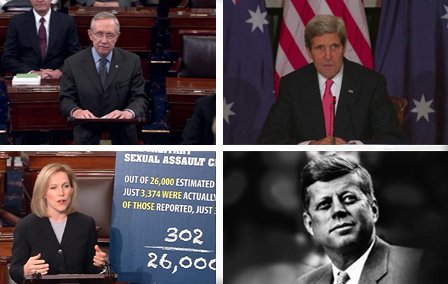
Full Episode: Senate's "Nuclear Option," 10-yr U.S.-Afghan Plan, Military Sexual Assaults & Remembering JFK


Full Episode: Gwen and Reporters Answer Viewer Questions

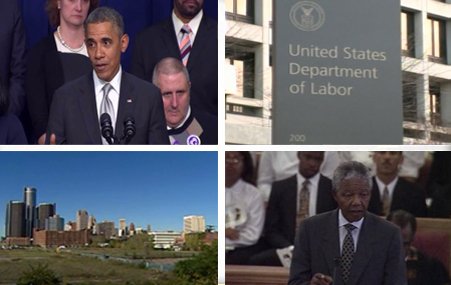
Full Episode: Affordable Care Act Improvements, Income Inequality, and Remembering Nelson Mandela

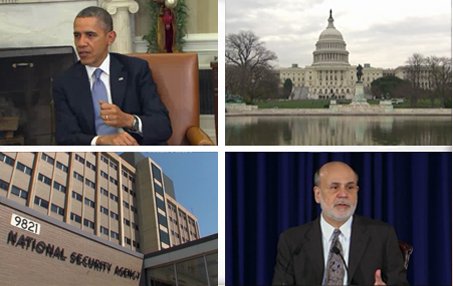
Full Episode: Budget Breakthroughs, White House Shake-ups, and John Kerry's Diplomatic Dealings

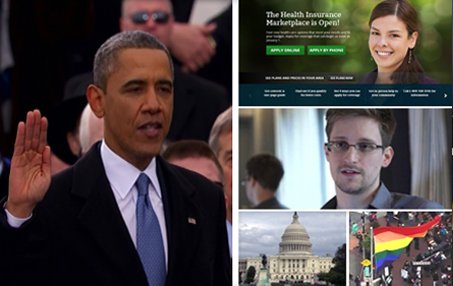
Full Episode: Obama's End of Year Presser, Monitoring the NSA, A Budget Deal in Congress, the Fed Trims Stimulus

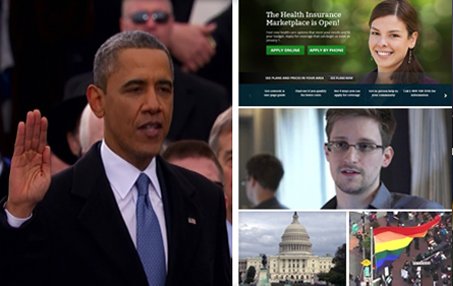
Full Episode: The Stories That Shaped 2013

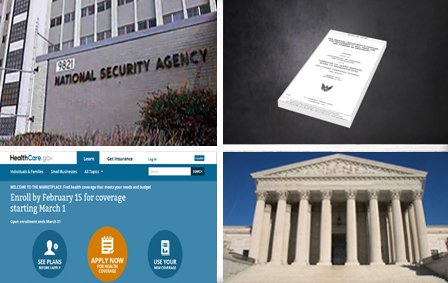
Full Episode: What Will 2014 Bring In Washington?

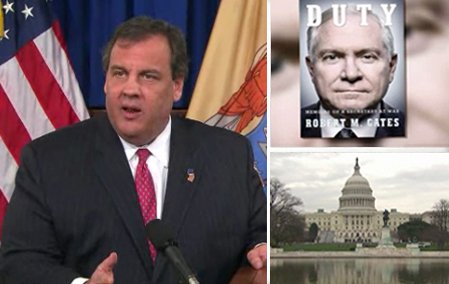
Full Episode: Christie's Traffic Troubles, Gates' Memoir, Tackling Unemployment & Focus On Poverty


Special: Webcast Extra: Is it too early to talk 2016?

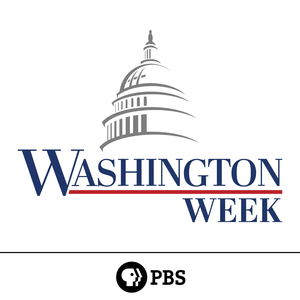
Special: Webcast Extra: Negotiations with Iran and U.S. Budget Policies

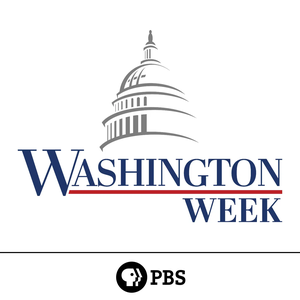
Special: Webcast Extra: Viewer Questions and New Movement on Iran Deal

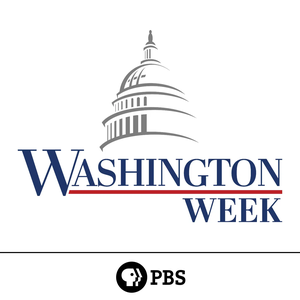
Special: Webcast Extra: Does the economy do better under Democrats or Republicans?

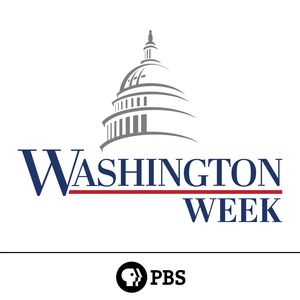
Special: Webcast Extra: Washington's priorities for 2014

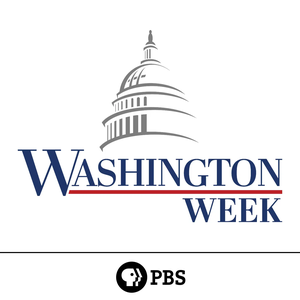
Special: Webcast Extra: The Optics of Obama's Press Conference & Changes at the Fed

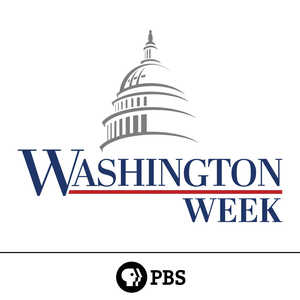
Special: Webcast Extra: The Sleeper Stories of 2014

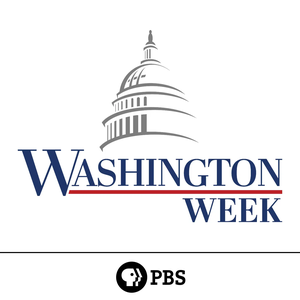
Special: Webcast Extra: Chris Christie and the Politics of Scandal

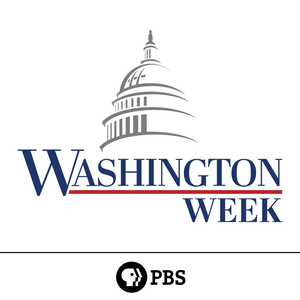
Special: Webcast Extra: Congressional retirements, recess appointments, and the NSA debate

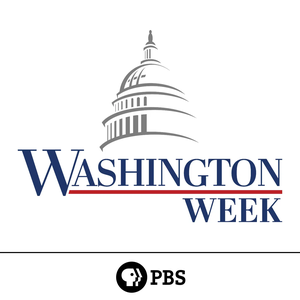
Special: Webcast Extra: Mike Huckabee & the GOP War on Women, Clemency for Snowden, and the State of the Union

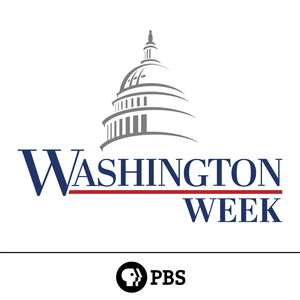
Special: Webcast Extra: The Latest Developments for Chris Christie in Bridge Shutdown Investigations

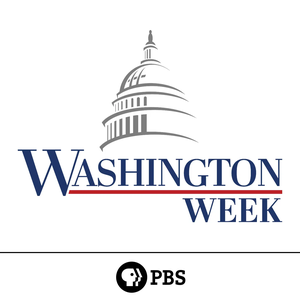
Special: Webcast Extra: Most Endangered Incumbents in 2014 & Jeb Bush's 2016 Prospects


Special: Webcast Extra: Is Scott Brown trying to make a New Hampshire comeback?


Special: Webcast Extra: Bringing Sexy Back to the 2014 Midterms

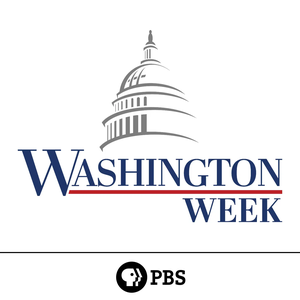
Special: Webcast Extra: Lawmakers & Shutdown Pay, Fixing Healthcare.gov, & Inside the Supreme Court

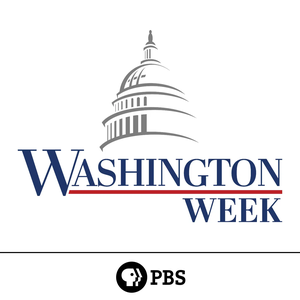
Special: Webcast Extra: Domestic and International Politics Surrounding Ukraine

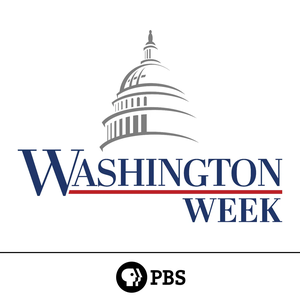
Special: Webcast Extra: Scott Brown's Comeback, Kerry-Lavrov Relationship, Ukraine Aid Stalls

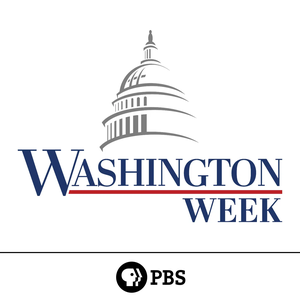
Special: Webcast Extra: Democrats Rally Women & Reporting on the Ground in Ukraine

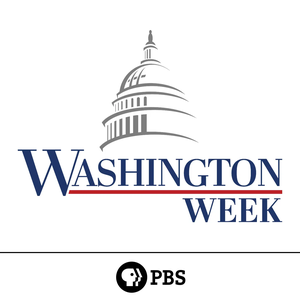
Special: Webcast Extra: Same-sex coverage under Affordable Care Act & campaign finance at Supreme Court

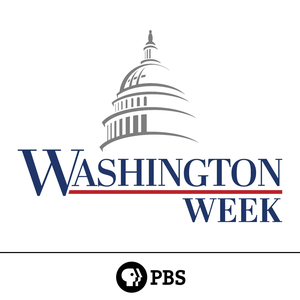
Special: Webcast Extra: Senate Pushes to Declassify CIA Torture Report

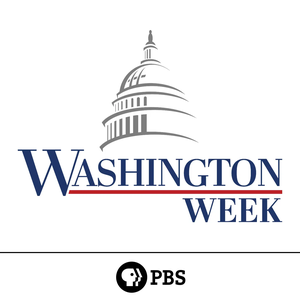
Special: Webcast Extra: Medicare Payouts to Doctors & HHS Nominee Sylvia Mathews Burwell's Background

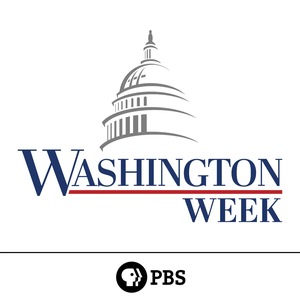
Special: Webcast Extra: Obama's Asia Pivot, Rand Paul's GOP Rise & Google's DC Footprint

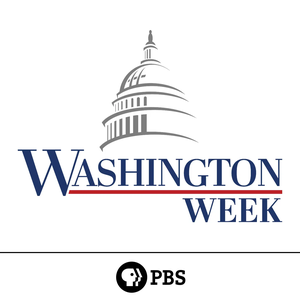
Special: Webcast Extra: Ukraine standoff and Sotomayor's strong dissent

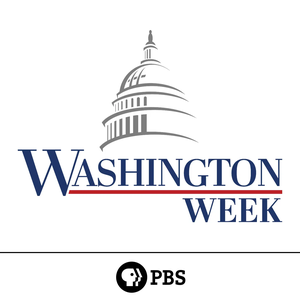
Special: Webcast Extra: Privacy & Secrecy and 2014 Election Runoffs

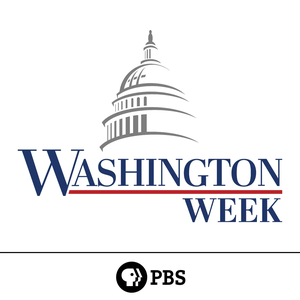
Special: Webcast Extra: Benghazi Investigations and Climate Change

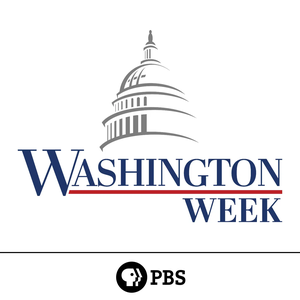
Special: Webcast Extra: Upcoming Primaries and Transgender Troops

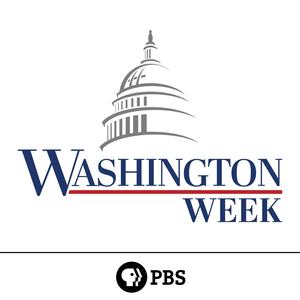
Special: Webcast Extra: NSA Practices and Same-Sex Marriage

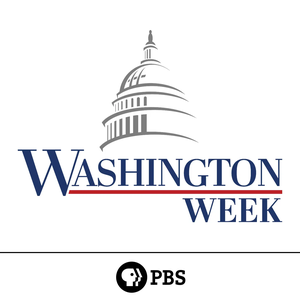
Special: Webcast Extra: Hard Choices and Iraq Involvement

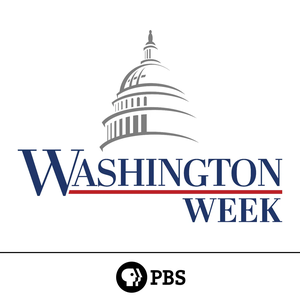
Special: Webcast Extra: "Hard Choices," Government Shutdown, and Ukraine Conflict

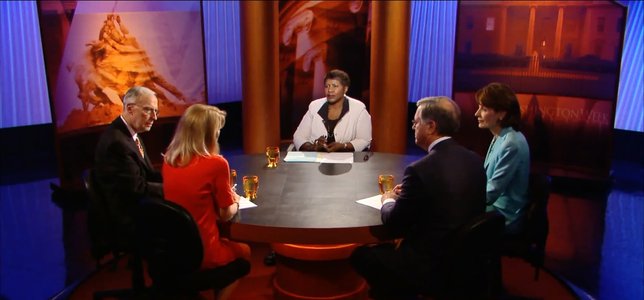
Special: Webcast Extra: Changes in Iraq, Obama's Frustration, and Hobby Lobby

© 1996 - 2026 WETA. All Rights Reserved.
PBS is a 501(c)(3) not-for-profit organization
